
Oct 30, 2024 / Author: China Glutathione suppliers & NMN manufacturers
Principle: NMN can be converted into NAD+ in the body, and NAD+ is an extremely important coenzyme in the process of cell energy metabolism.
It is involved in key metabolic reactions such as the tricarboxylic acid cycle, which is able to convert nutrients from food into a form of energy (ATP) that cells can use.
With the increase of age, the level of NAD + in the human body will gradually decline, resulting in a decrease in the efficiency of energy metabolism, and the supplement of NMN helps to improve the level of NAD +, thus enhancing the energy metabolism capacity of cells.
Performance: After supplementing with NMN, the body may feel more energetic, less tired, and may have improved exercise capacity and endurance, and be more energetic in daily activities.
At the cellular level: As we age, DNA damage accumulates inside cells, while the ability to repair DNA gradually declines, which is one of the important drivers of aging.
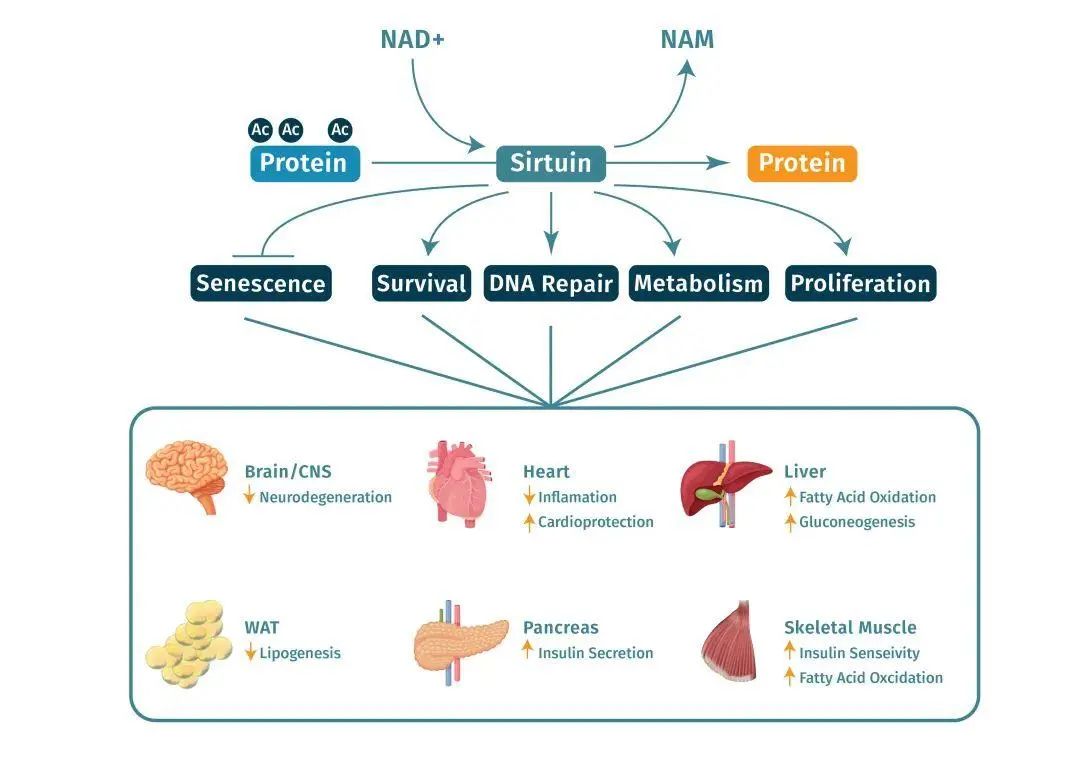
NAD + dependent proteins such as Sirtuins have functions of regulating cell survival, apoptosis and DNA repair. Supplementing NMN to increase the level of NAD + can activate these proteins, enhance the DNA repair ability of cells, reduce the accumulation of DNA damage, and maintain the normal function and structure of cells. Thereby delaying the aging process of cells.
Overall physiological function level: By improving the metabolism and function of cells, NMN has a certain positive impact on the function of various organs and systems in the body, and then delays the aging of the body as a whole, such as improving skin condition, strengthening muscle strength, and improving cognitive function.
Protection of nerve cells in the brain: Nerve cells in the brain have an extremely high demand for energy and nutrients, and are vulnerable to damage from factors such as oxidative stress.
By increasing the level of NAD +, NMN provides more energy support for nerve cells, while enhancing the antioxidant capacity of nerve cells, reducing the damage of free radicals to nerve cells, and protecting the structure and function of nerve cells.
Promotes the synthesis and release of neurotransmitters: Neurotransmitters are chemicals that transmit messages between nerve cells and are essential for cognitive function.
NMN may promote the synthesis and release of neurotransmitters such as acetylcholine by affecting related signaling pathways, thereby improving the brain's learning, memory and thinking abilities.
In animal experiments, mice supplemented with NMN performed significantly better on learning and memory tests than mice not supplemented with NMN.
Regulation of immune cell metabolism: The normal function of immune cells requires adequate energy and nutrient support.
NMN can improve the level of NAD + in immune cells, optimize the energy metabolism of immune cells, and enable immune cells to play immune defense, immune surveillance and other functions more effectively.
Enhance the activity and proliferation ability of immune cells such as T cells and B cells, and improve their ability to recognize and attack pathogens.
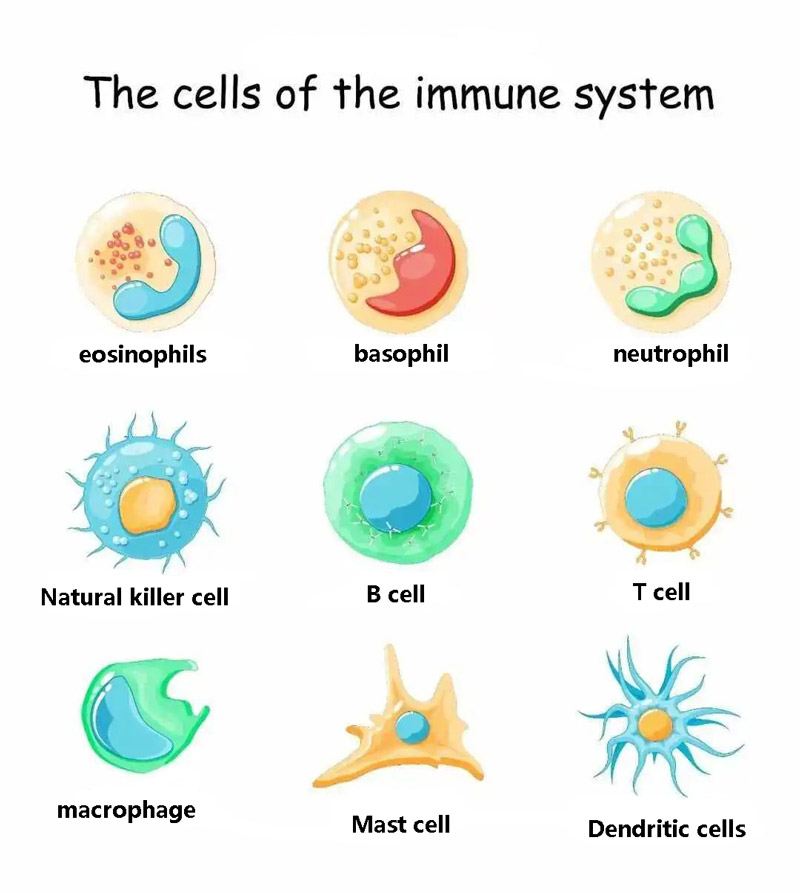
Maintain the function of immune organs: immune organs such as the thymus and spleen are the places where immune cells produce, develop and mature.
As we age, these immune organs gradually shrink and their function declines.
NMN may improve the microenvironment of immune organs, maintain the structure and function of immune organs, and provide protection for the normal development and maturation of immune cells.
Maintain the normal function of cardiovascular cells: cardiovascular cells need a stable energy supply and a good metabolic state to maintain normal contraction, diastole and other functions.
NMN can increase the level of NAD + in cardiovascular cells, enhance the energy metabolism of cells, and ensure the normal operation of cardiovascular cells.
It can also reduce oxidative stress and inflammatory responses within cardiovascular cells, reducing the risk of cell damage and apoptosis.
Improve vascular endothelial function: Vascular endothelial cells are an important part of the inner wall of blood vessels, and their abnormal function can lead to vascular dilation and contraction dysfunction, vascular wall thickening and other problems, increasing the risk of cardiovascular diseases.
NMN can promote the production of vasodilator factors such as nitric oxide by vascular endothelial cells, improve the function of vascular endothelium, increase the elasticity and permeability of blood vessels, reduce blood pressure, and reduce the occurrence of atherosclerosis.
Muscle cells require a lot of energy in the process of contraction and movement, and the transformation of NMN into NAD + can participate in the energy metabolism process of muscle cells, provide sufficient energy for muscle cells, and promote the growth and development of muscle cells.
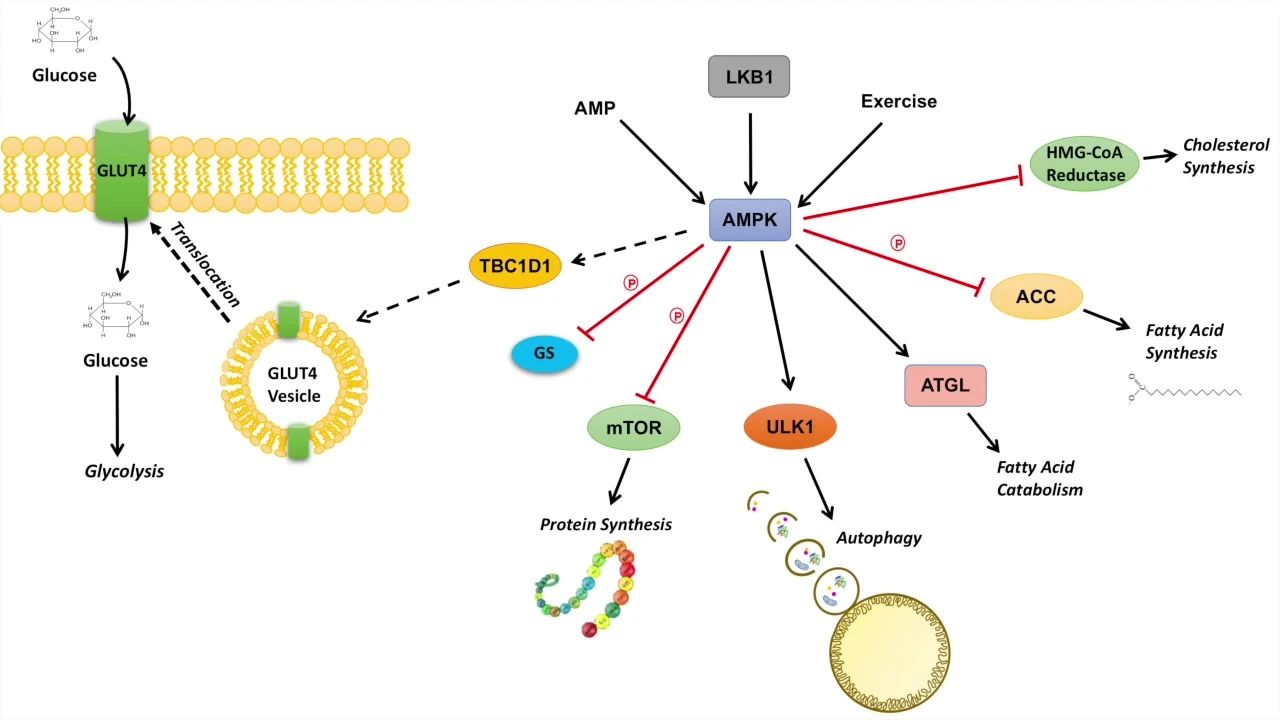
Some studies have found that NMN may promote protein synthesis and proliferation and differentiation of muscle stem cells by activating signaling pathways such as AMPK, thereby increasing muscle mass and strength.
For the elderly or those with diseases such as muscle atrophy, supplementing with NMN may help improve muscle condition.
Regulation of the biological clock: The body's biological clock is regulated by a variety of factors, among which the NAD + dependent Sirtuins protein family plays an important role in the regulation of the biological clock.
Supplementation of NMN can increase the level of NAD +, which in turn regulates the activity of Sirtuins proteins, makes the rhythm of the biological clock more stable, and improves the sleep-wake cycle.
Relieve nervous tension: NMN has a certain neuroprotective effect, which can reduce the stress and tension of the nervous system, help people relax, easier to enter a deep sleep state, and improve sleep quality.
Direct removal of free radicals: Free radicals are highly active molecules produced during metabolism in the body, which attack biological molecules within cells, such as DNA, proteins, lipids, etc., leading to cell damage and aging.
NMN itself has a certain antioxidant capacity and can directly react with free radicals to remove them and reduce the damage of free radicals to cells.
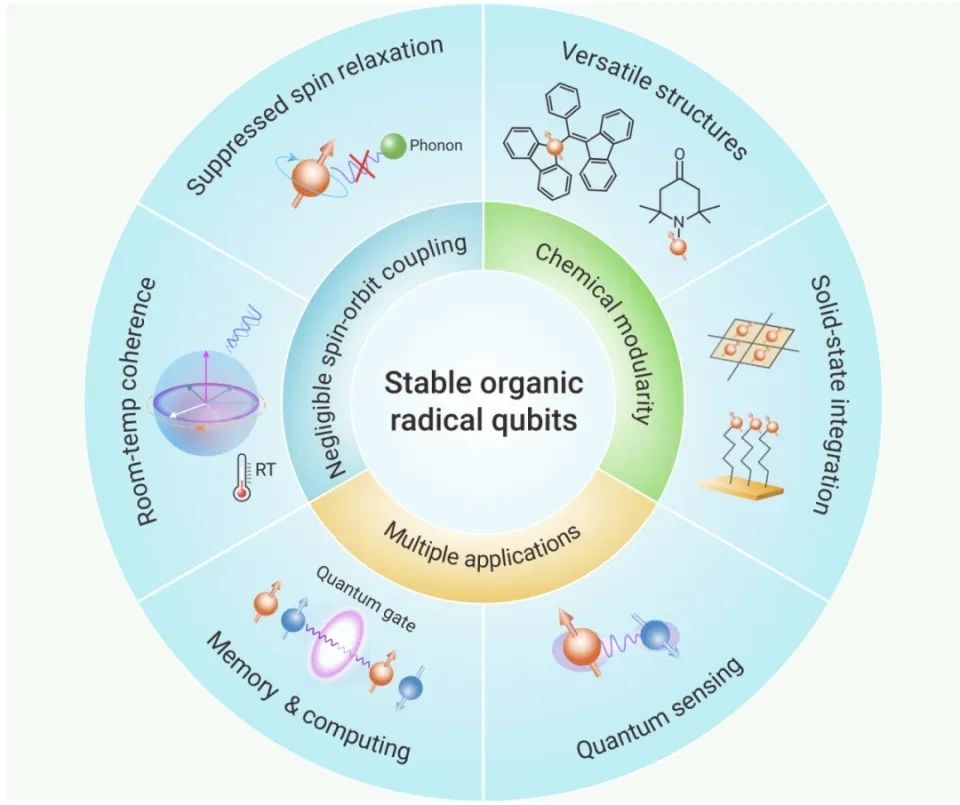
Enhance the activity of antioxidant enzymes: there are some antioxidant enzymes in the body, such as superoxide dismutase (SOD), glutathione peroxidase (GSH-Px), etc., which can catalyze the decomposition and removal of free radicals.
NMN can increase the level of NAD +, activate related signaling pathways, enhance the gene expression and activity of these antioxidant enzymes, and improve the antioxidant defense ability of cells.
Improve insulin sensitivity: Insulin is an important hormone that regulates blood sugar, and decreased insulin sensitivity is one of the important reasons for elevated blood sugar and diabetes.
NMN can improve the metabolic state and signal transduction of cells, improve the sensitivity of insulin receptors, enhance the response of cells to insulin, promote the uptake and utilization of glucose, and thus reduce blood sugar levels.
Regulates the activity of enzymes related to glucose metabolism:
A variety of enzymes are involved in the process of sugar metabolism, and NMN can affect the activity of these enzymes, such as promoting the activity of hexokinase and pyruvate kinase, accelerating the decomposition and metabolism of sugar, and reducing blood sugar concentration.
Promote lipolysis: NMN can activate some signaling pathways in fat cells, such as AMPK signaling pathway, promote the decomposition and oxidation of fat, and reduce the accumulation of fat in the body.
It can also improve the liver's ability to metabolize fatty acids and reduce the levels of blood lipid components such as triglycerides and cholesterol.
Lipoprotein is an important carrier of blood lipids, and NMN can affect the synthesis, secretion and metabolism of lipoproteins, such as increasing the level of high-density lipoprotein (HDL, that is, "good cholesterol") and reducing the level of low-density lipoprotein (LDL, that is, "bad cholesterol"), so as to improve the metabolic status of blood lipids.
Reduce oxidative stress in the liver: The liver is an important organ of metabolism in the body and is susceptible to various factors to produce oxidative stress.
The antioxidant effect of NMN can reduce the production of free radicals in liver cells, reduce the level of oxidative stress, and protect liver cells from oxidative damage.
Suppression of liver inflammation: Inflammation plays an important role in the occurrence and development of liver diseases.
NMN can regulate the function of immune cells in the liver, reduce the release of inflammatory factors, inhibit the occurrence and development of inflammatory response, and have a certain protective effect on liver diseases such as hepatitis and fatty liver.
Maintenance of energy metabolism of kidney cells: Kidney cells need to continuously carry out material transport and metabolic activities, which requires a lot of energy consumption.
NMN can increase the level of NAD + in kidney cells, ensure the energy supply of cells, and maintain the normal metabolism and function of kidney cells.
Alleviating ischemia-reperfusion injury in the kidneys: During some kidney diseases or surgery, the kidneys undergo a process of ischemia-reperfusion, which can cause damage and dysfunction of kidney cells.
NMN can reduce the damage caused by ischemia-reperfusion by improving the antioxidant capacity and energy metabolism of renal cells.
Regulating the balance of intestinal flora: Intestinal flora has an important impact on human health, and they participate in various physiological processes such as food digestion, nutrient absorption, and immune regulation.
NMN may regulate the composition and distribution of intestinal flora by affecting the intestinal microenvironment, increase the number of beneficial bacteria, reduce the growth of harmful bacteria, and maintain the balance of intestinal flora.
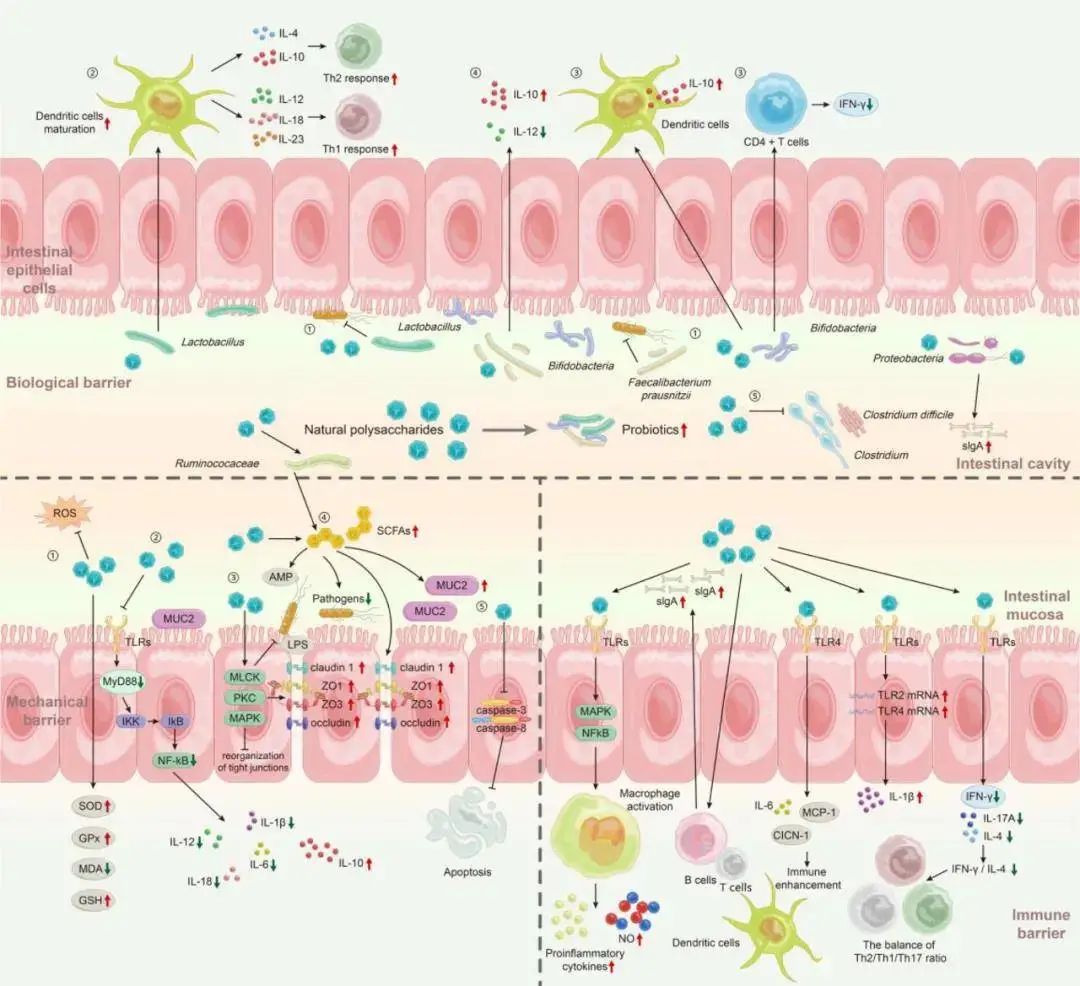
Enhance intestinal barrier function: Intestinal barrier is an important defense line to prevent harmful substances from entering the body, including physical barrier, chemical barrier and immune barrier.
NMN can promote the growth and repair of intestinal epithelial cells, enhance the tight connection of intestinal mucosa, improve intestinal barrier function, and reduce the occurrence of intestinal inflammation and infection.
Increase collagen production: Collagen is one of the main components of skin, which maintains elasticity and firmness.
NMN can activate the signaling pathway related to collagen synthesis, promote the synthesis of collagen by fibroblasts, increase the content of collagen in the skin, reduce the generation of wrinkles, and make the skin more smooth and delicate.
Improve the moisture content of the skin: The moisture content of the skin is essential for its appearance and function.
NMN can promote the synthesis of moisturizing factors such as hyaluronic acid, increase the moisture content of the skin, improve the dry condition of the skin, and make the skin more hydrated.
Improve the efficiency of energy supply: During exercise, the body needs a lot of energy to support muscle contraction and movement.
NMN can increase the level of energy metabolism in cells, allowing the body to use oxygen and nutrients more efficiently and produce more energy, thereby improving exercise endurance.
Reduce fatigue and injury after exercise: Metabolites such as lactic acid are produced after exercise, leading to muscle fatigue and soreness.
The antioxidant effect of NMN can reduce the free radicals generated during exercise, reduce oxidative damage, and promote the repair and regeneration of muscle cells, relieve fatigue and damage after exercise, and make the body recover faster.
Inhibit the production of inflammatory factors: Inflammatory factors are important mediators that cause inflammatory response, and their excessive production can lead to inflammation and damage of tissues.
NMN can regulate the function of immune cells, inhibit the production of inflammatory factors such as tumor necrosis factor-α (TNF-α) and interleukin-6 (IL-6), and reduce the degree of inflammatory response.
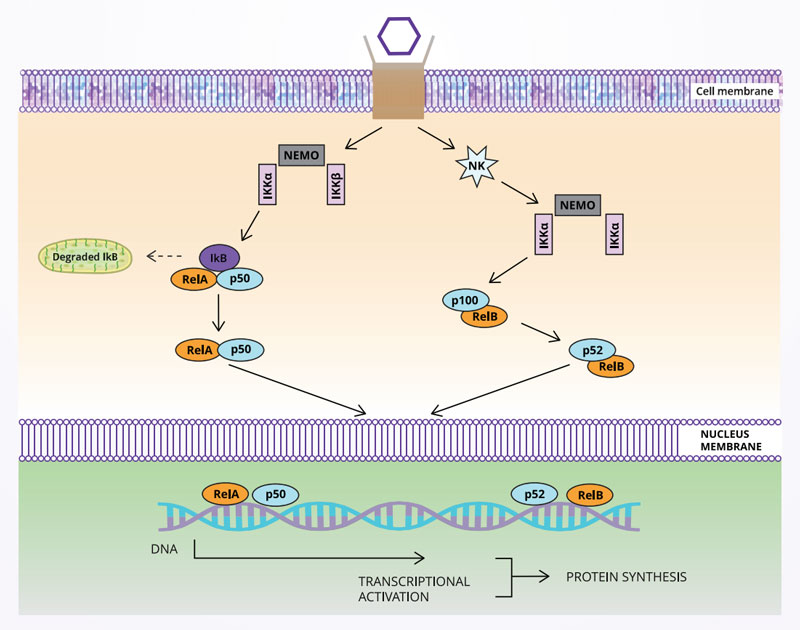
Regulation of inflammatory signaling pathways: The occurrence of inflammatory response involves the activation of a variety of signaling pathways, and NMN can regulate the occurrence and development of inflammatory response by affecting the activity of these signaling pathways, such as NF-κB signaling pathway.
Activate DNA repair enzymes: DNA may be damaged in the process of replication, transcription, etc., and needs to rely on a series of DNA repair enzymes to repair.
NMN can increase the level of NAD +, activate the activity of DNA repair enzymes such as PARP, promote DNA repair, and maintain the stability of the genome.
Maintaining telomere length: Telomeres are protective structures at the ends of chromosomes, and as the number of cell divisions increases, the telomeres will gradually shorten, and when the telomeres shorten to a certain extent, the cell will stop dividing and enter a state of aging.
NMN can stabilize the length of telomeres and delay cell aging by activating Sirtuins proteins.
By influencing the NAD + dependent Sirtuins protein family and other ways, NMN can regulate the expression and activity of genes related to the biological clock, so as to make the rhythm of the biological clock more stable, help the body better adapt to the circadian changes, improve sleep quality, and improve the overall physiological state of the body.
Improved blood supply to the reproductive organs: A good blood supply is essential for the proper functioning of the reproductive organs.
NMN can promote the production of vasodilator factors such as nitric oxide by vascular endothelial cells, improve the blood supply of reproductive organs, and enhance sexual function.
Regulating sex hormone levels: sex hormones such as androgens, estrogens, etc. play an important role in regulating sexual function.
NMN may affect the function of endocrine system, regulate the secretion and metabolism of sex hormones, increase the level of sex hormones, and thus improve sexual function.
Enhance energy production in the mitochondria: Mitochondria are the "energy factories" within the cell that are responsible for converting nutrients into ATP.
NMN can increase the level of NAD + in mitochondria, enhance the activity of mitochondrial respiratory chain complex, improve the energy production efficiency of mitochondria, and provide more energy for cells.
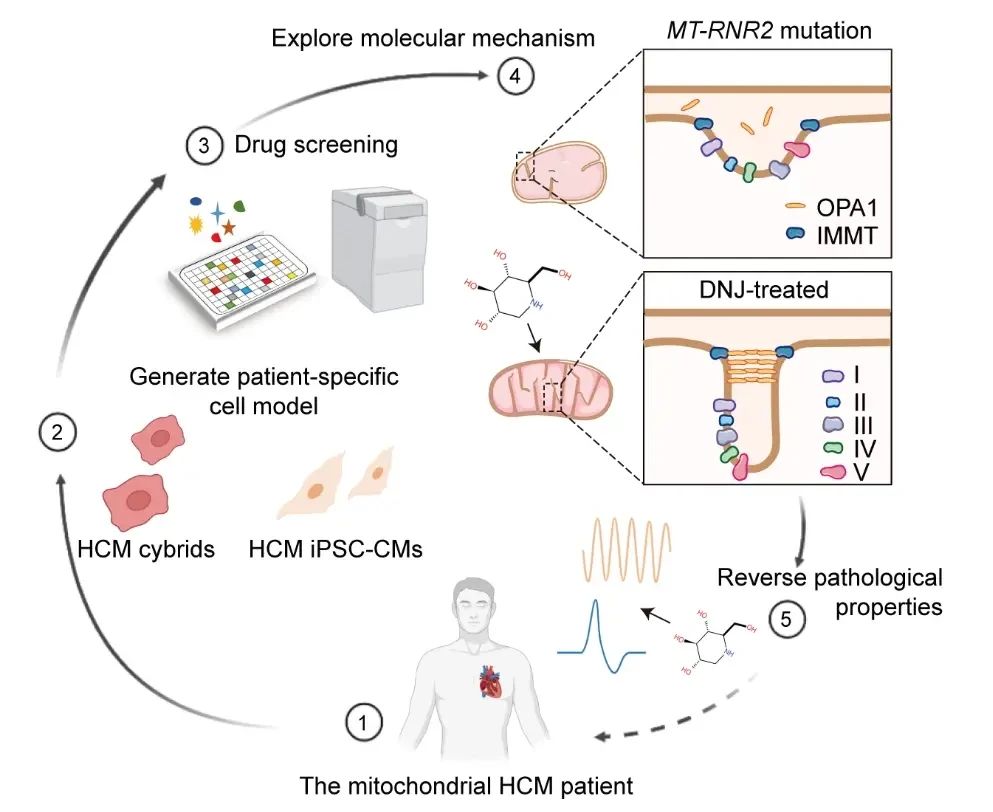
Maintaining the structural and functional integrity of mitochondria: The structural and functional integrity of mitochondria is essential for the proper metabolism and survival of cells.
NMN can reduce oxidative stress and damage in mitochondria.
Camacho-Pereira, J., Tarragó, M. G., Chini, C. C., Nin, V., Escande, C., Warner, G. M., … & Chini, E. N. (2016). CD38 dictates age-related NAD decline and mitochondrial dysfunction through an SIRT3-dependent mechanism. Cell Metabolism, 23 (6), 1127-1139.
Kiss, T., Giles, C. B., Tarantini, S., Yabluchanskiy, A., Balasubramanian, P., Gautam, T., … & Farkas, E. (2019). Nicotinamide Mononucleotide (NMN) supplementation promotes anti-aging miRNA expression profile in the aorta of aged mice, predicting epigenetic rejuvenation and anti-atherogenic effects. Geroscience, 41 (4), 419-439.
Yoshino, M., Yoshino, J., Kayser, B. D., et al. (2021). Nicotinamide mononucleotide increases muscle insulin sensitivity in prediabetic women. Science, 372 (6547), 1224-1229.
Katayoshi, T., Nakajo, T., Tsuji-Naito, K. (2021). Restoring NAD+ by Nampt is essential for the SIRT1/p53-mediated survival of UVA- and UVB-irradiated epidermal keratinocytes. J Photochem Photobiol B, 221, 112238.
Supplier Introduction: China glutathione supplier and NMN manufacturer GSHworld, the company mainly develops biotechnology and industrialization. As a global pioneer in enzymatic catalytic ATP regeneration technology, our company advocates green production and is committed to providing customers with better and more environmentally friendly products and services. Glutathione Manufacturer,NMN Factory,Citicoline Sodium supplier,China NMN manufacturers
+86-755-23577295
+86 18718790084
Room 832, Building 12, Shenzhen Bay Science and Technology Ecological Park, Yuehai Street, Nanshan District, Shenzhen China